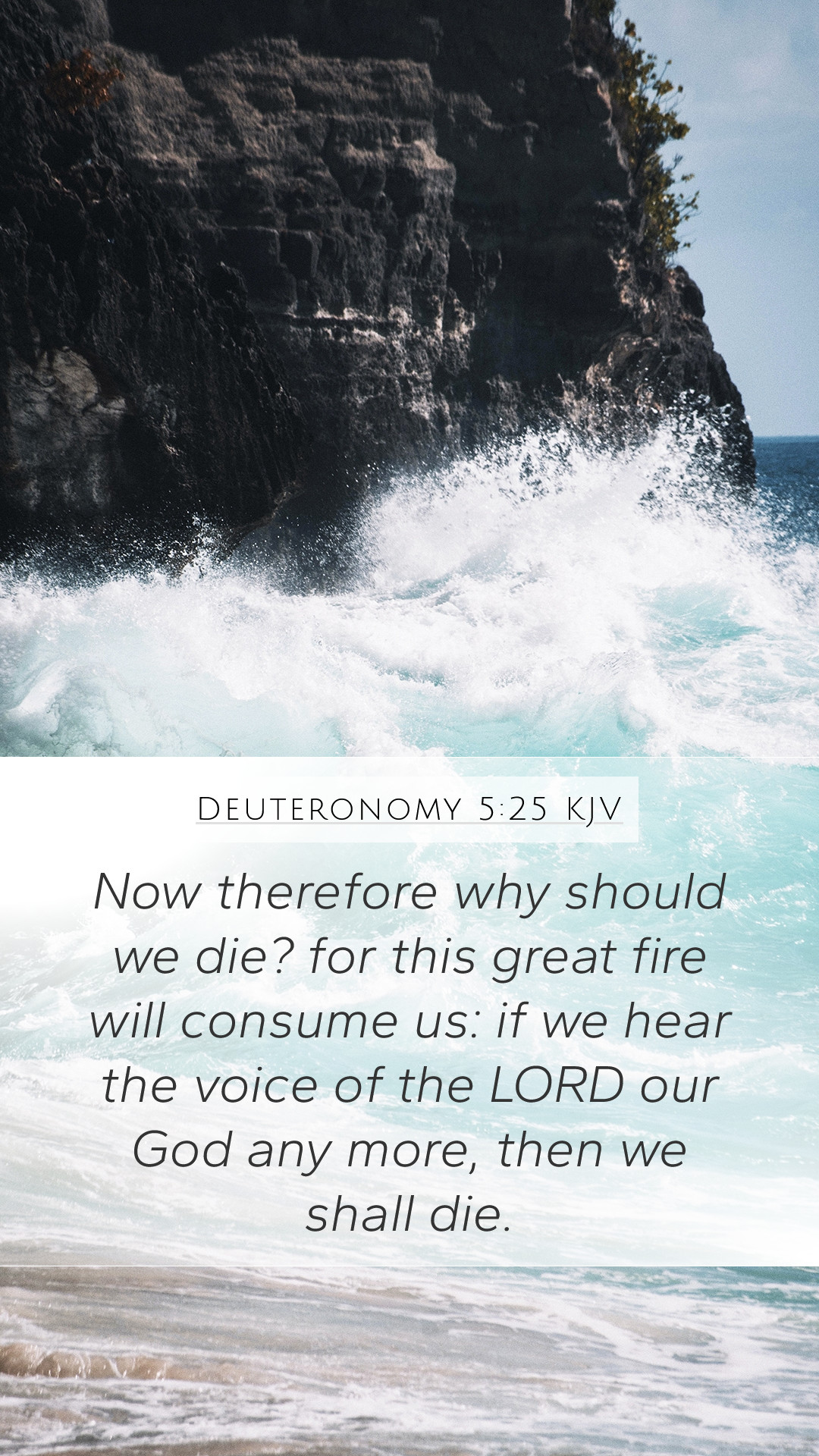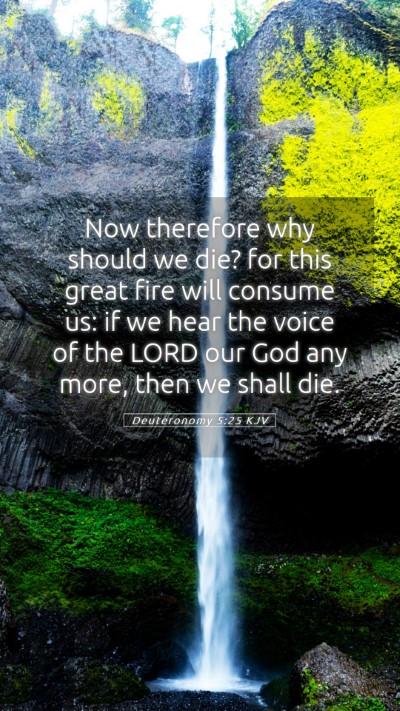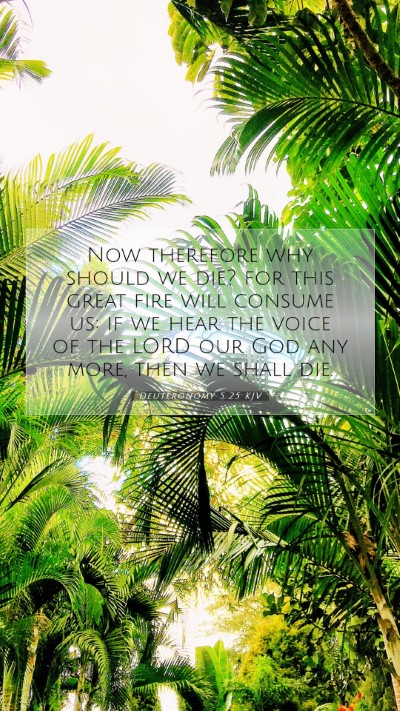Understanding Deuteronomy 5:25
Deuteronomy 5:25 states:
"But now, why should we die? For this great fire will consume us; and we will die if we hear the voice of the Lord our God any longer."
Overview of Deuteronomy
The book of Deuteronomy serves as a recap of the laws given to the Israelites, emphasizing God's covenant with them. In this section, the people express their fear of God's voice and the divine presence, which is highlighted in this verse.
Commentary Insights
-
Matthew Henry's Commentary:
-
Fear of God's Presence: Henry notes that the Israelites were overwhelmed by the experience of God’s glory and holiness. Their plea signifies a recognition of their own unworthiness to approach such an awesome presence.
-
Understanding of God's Law: The fear expressed reflects a deeper understanding of the law and God’s expectations. It serves as a reminder of the seriousness of sin and the weight of divine judgment.
-
Albert Barnes' Notes:
-
The Nature of God: Barnes emphasizes that the voice of God is both powerful and fearful. The verse captures the human tendency to recoil from God's commands, reflecting a need for mediation between God and humanity.
-
The Mediating Role: This fear indirectly sets the stage for Moses’ role as mediator between God and the people, emphasizing the necessity of intercession for sinful humanity.
-
Adam Clarke's Commentary:
-
The Context of Revelation: Clarke provides insight into the Israelite experience at Sinai. The fear of being consumed by God's presence speaks to the seriousness with which they viewed divine revelations and the consequent instructions given by God.
-
Principle of Fear and Reverence: He highlights the balance of fear and reverence that believers should hold toward God, promoting an understanding of God's vast power alongside His desire for a relationship with His people.
Meaning and Application
The verse urges contemporary readers to recognize the holiness of God and the serious nature of His commands. It serves as an invitation to explore the nature of fear in relation to God – a balance between reverence and love.
Applications in Daily Life
-
In Personal Worship:
Embrace the fear of the Lord not as a paralytic fear but as a motivating force that leads to reverent worship and honor towards God.
-
In Community:
Encourage community dynamics in Bible study groups where individuals can express fears and questions in a safe environment, fostering growth in 'Bible study insights' and 'understanding Scripture.'
-
In Understanding God's Commands:
Recognize the necessity of engaging with the Scriptures deeply to discern the heart of God's decrees and how they apply to modern life.
Cross References
- Exodus 20:18-19 - Recognition of God's presence and the fear it instills.
- Hebrews 12:18-21 - Comparison of the fearful nature of God’s presence in the Old Testament.
- Isaiah 33:14 - Reference to the righteous’ fear of the Lord and His judgment.
Conclusion
In conclusion, Deuteronomy 5:25 highlights the essence of fearing God, a theme that resonates throughout Scripture. The insights from various commentaries help elucidate the profound implications of this fear, inviting believers into deeper study and understanding of God's word. As we engage in online Bible study or utilize Bible study resources, let us remember the significance of this verse and apply its teachings to our lives, drawing near to God with a humble and contrite heart.


